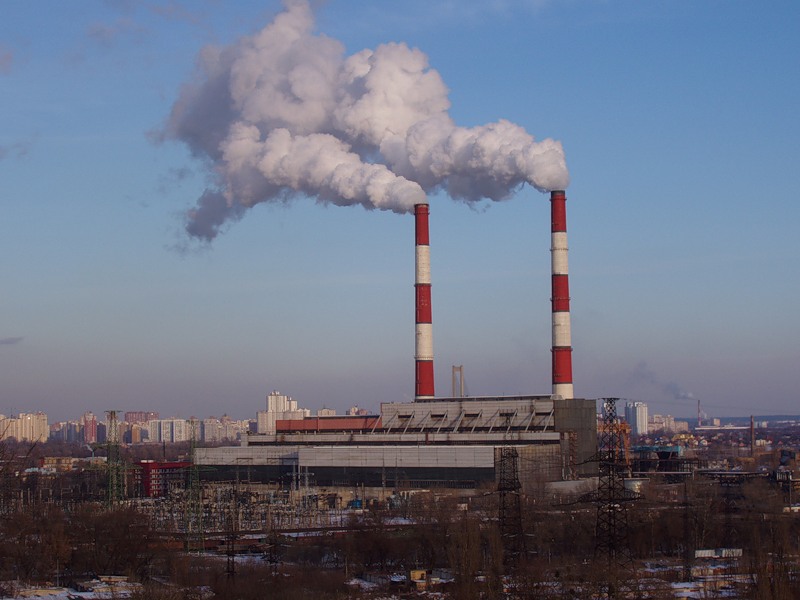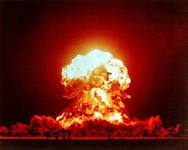
- •Introduction
- •1.Think about an important scene in your life that you remember very clearly. Tell the class.
- •2.Read the Strategies.
- •3. Use the Strategies to answer these questions about the text.
- •4.Use the endings below to make adjectives from the group of words
- •5. Make adverbs from the adjectives in a, b and c. Then try to add more
- •6.Look at the words in Exercise 4. In which of them is there a change in word stress?
- •7.Put the underlined words in the correct form.
- •8. Choose a memory from your life. Write notes about these things:
- •9. Work in pairs. Tell your partner about your memory.
- •1. Complete the sentences in column a with a phrase from column b.
- •2. Change the words in italics in exercise 1 to make sentences that are true for
- •3. Read the information Files on England, Scotland and Wales and which of
- •4. Read the text about Northern Ireland and answer the questions.
- •5. Read the text. Match the beginnings and the endings of the sentences.
- •6. Complete the description with these verbs in the correct form.
- •7. Write a paragraph about your country. Write about the national flag, the
- •1. Read and practise.
- •2. Decide whether these statements are true (t) or false (f) according to the passage.
- •3. Think about.
- •4. Decide whether these statements are true (t), false (f), or impossible to know (ik) according to the passage.
- •5. Look at these common English expressions and then decide whether you
- •6. Match these adjectives with definitions. Then compare with a partner:
- •7. Can you give definitions for these words?
- •8. Use the words in parentheses to complete the sentences.
- •9. A) Look at the three styles of text (1-3). Try to match them with the personality descriptions (a-c).0
- •1. Look at the students of your group and say:
- •3. Group the sentences in the following passages matching them with the proper question, as shown above. Translate the passages.
- •4. Following the patterns below make up 4 sentences characterizing a person. Use look, look like, look as if, and look as though.
- •5. Use the models above in a short dialogue.
- •6. Look at the following words used to describe people’s character. Make two columns of 1) what you think are bad characteristics;2) what you think are good characteristics.
- •7. Use some of the words in a sentence describing someone’s character.
- •8. What would you think of a person who says:
- •10. Use your dictionary to clarify your understanding of the following idioms. Translate them. Make up a situation to prove your proper understanding of each idiom.
- •11. Role-play “a Formal Gathering”.
- •12. Write a short description of somebody’s physical appearance and character.
- •13. Write:
- •4.Put the words in the right groups. Use a dictionary to help you. Can you add any more words to the lists?
- •5.In pairs, answer the questions.
- •6.Come Together Read the definition and try and guess what the underlined metaphors in sentences 1-7 mean.
- •7. Think about the images conveyed by these metaphors. Choose the metaphor which best fits the context. Then make sentences with the unused options. Use a dictionary to help you.
- •13. Match texts a-e with the main ideas.
- •14.Complete the sentences with words from the texts,
- •15.Complete the sentences with the correct forms of the words in
- •16. In pairs, discuss the questions.
- •17.Work in pairs and follow the instructions.
- •19. Match the expressions with their meanings.
- •20.Role play “a Students’ Party”
- •2.Report your partner's answers to the class.
- •3. Read the text and answer the questions:
- •4. Comprehension Check
- •5. Make up all possible derivatives from the stems of the verbs below.
- •6. Pronounce the words correctly and comment on the shift of meaning in
- •2. Match the words with the correct definitions.
- •3. In pairs, describe the photos. Use the phrases in exercises 1 and 2 to
- •4. Read the text a.
- •5. As you read the text a) look for the answers to these questions:
- •7. Read the article. Work out the meaning of the highlighted words in the article
- •8. Read the text b, list advantages and disadvantages of globalization. Globalization
- •Life in the 21st century
- •1.Work in groups and discuss the questions.
- •2. Memorize the conversation. Close your books and practice with your
- •1. Write some notes about ecological problems in Kazakhstan that you
- •2. What do you think?
- •1. Before you start:
- •2. Answer the following questions:
- •3. Fill in the gaps:
- •4.Translate the following sentences into your native language
- •5. Points for reflection.
- •1. Work in groups. Try to list all the advantages and disadvantages of
- •2. After brainstorming your ideas, read the article below. Were your
- •3. What do you think?
- •4. Work in pairs. Write 12 questions on the article and fire away your
- •Types of Mass Media
- •1. Questions for discussion before reading the article:
- •2. Read the article
- •3. True or false statements:
- •4.Work with your partner. Make up a conversation using these words:
- •5. Speak on the role of Mass media nowadays in our life.
- •6. Game: Mass media……….
- •Information
- •1. Write your associations with the word “ Press”
- •2. Read the article.
- •3. Express your attitude to the article.
- •4.Complete the sentences with the words from the box:
- •5. Imagine you work as a journalist. Write an article ( approximately 180
- •6. Work in groups. Do you subscribe to newspaper regularly? What kind
- •7.Read the dialogue with a partner and dramatize it:
- •Newspaper
- •3. Are the sentences true (t) or false (f)?
- •4. Read the joke and can you remember another one which you have recently read from the magazines.
- •Television
- •1. Read the article.
- •2. Comprehension check.
- •3. Put the prepositions.
- •1. Read the following questions with your partner and note down his/her
- •1. Read the following statements, discuss them and try to reach an
- •Radio and Television
- •Radio and Television
- •4. Here are some answers to some questions about to the article. Write
- •5. What do you think?Which of them more entertainment and
- •Important? tv or Radio? What is the Internet?
- •3. Fill in the gaps.
- •4. Are the sentences true (t) or false (f)?
- •5. In pairs do the quiz.
- •What do you think?
- •Olympic games
- •1. Test your football vocabulary! Complete the questions with the words in
- •2. Read the article.
- •3. Translate the following sentences into English.
- •4. Read the article and work out the mening of the highlighted words in the article.
- •5. Sport quiz.
- •6. Conversation Questions.
- •7. Write a topic for the theme: “Sport and Games ” by using the following words.
- •1. Read the text about “Travelling” and check you know the underlined
- •2. Answer the following questions:
- •1. Complete the text with these words.
- •2. Underline 6 words or phrases you don’t know.
- •Conversation
- •3. Act out the similar dialogue.
- •1. Read the text and give the definition of the highlighted words in the story.
- •2. Imagine you want to visit a city 700- 900 away from your home town. How
- •3. Match verbs 1-10 with their collocations a-e.
- •4. In pairs, complete each gap with one word. Then match sentences 1-7 with
- •1. Read the conversation and act out it with your partner.
- •2. Make up a similar dialogue.
- •3. Role-play.
- •4. Complete the text with a-f to make meaningful phrases.
- •1. Look at the picture travelling by sea and discuss using your own words.
- •2. Speak on your own or somebody else’s ‘travelling by sea’ experience.
- •3. What do you think if the sea isn’t rough, everybody enjoys a voyage.
- •4. Answer the following questions:
- •5. Translate the following sentences into English.
- •1. Speak out. Then complete gaps 1-7 in the dialogue.
- •3. Read an interesting article about trains.
- •4. Work in pairs or small groups. Discuss these questions together.
- •1. Answer the questions?
- •2. Read and talk about the theatre and entertainment.
- •1. Read the text and give the title of the story.
- •3. A) Work in pairs. Use these expressions below exchanging impressions
- •4. Match verbs 1-7 with their collocations a-j.
- •5. A) Look at these pictures and describe them.
- •1. A) Read the text and talk about art.
- •2. Answer the questions:
- •3. Look at the paintings and speak about them and complete the text with the
- •4. In pairs, answer the questions.
- •1. Look at the picture and describe it.
- •Culture
- •1. Answer the questions.
- •2. Read the text
- •2. Answer the questions:
- •1. Read these five texts and ask questions.
- •2. Task: Students have to define
- •3. Tell about positive and negative sides of one of these things. Try to
- •1. Read and answer the questions:
- •2. Look through the text and discuss it in class.
- •3. Translate these sentences into Russian.
- •1. Read the three text and discuss these questions with you partner.
- •2. Read the text again and give the definition of the highlighted words.
- •1. Look through the text and give your opinions.
- •2. Ask questions on the text.
- •1. Reading Strategies:
- •4. What do you usually on different television programmers? Match each
- •5. Which of the programmers above do you like? Use the following
- •6. Put the correct word or phrase from the following list into the
- •1. Describe the photo and answer the questions.
- •2. Read the story and complete it with these words from the box.
- •1. Task: Read the statement.
- •2. Make up word-combinations.
- •Contents
- •1. Introduction ………………………………………………………........ 3
Life in the 21st century
1.Work in groups and discuss the questions.
1. Are you optimistic about the future?
2. Do you believe that robots will do all the dangerous and dirty work for us?
3. What will robots do for us?
4. Will our planet become cleaner or more polluted?
5. Pessimists say that one day we’ll have to pay for clean air just like we do
now for clean water. Do you think it’s possible?
6. Have you ever seen an electric car?


We’ve entered a new era: the twenty-first century. Of course, it’s exciting and we are trying to predict what our life will be like in the future. It will certainly become better - I’m sure of it. Robots will do all the dangerous and dirty work for us and our daily life will become easier. They’ll sweep the floor, dust the furniture, wash the dishes and even cook! It doesn’t mean we’ll become lazier, no. When everything is automated, we’ll be able to do more creative jobs. We’ll be able to call our friends on a videophone and type up homework by talking to a small gadget that understands the human voice. Scientists (or probably computers?) will find solutions to our most urgent problems. People will stop dying from cancer and AIDS and will live to be 150 years old.
There will be no more famine on our planet and no more hungry children. Our cities will become cleaner, greener and safer. We’ll drive electric cars and live in houses with lots of plants and special air-cleaning gadgets.
Atmospheric pollution will be stopped and our planet will be saved. There will be no more wars, no more criminals and no more terrorists. People will learn to live in peace and understand each other.
We’ll have more free time and longer holidays. We’ll be able to travel in space and – who knows? – one day we’ll be able to spend our holidays on Mars.
I’m really optimistic about the future. After all, we are becoming wiser. The super powers are disarming, governments are waking up to Green issues.
Anyway, it’s up to us to look after our planet and try to make it a better place to live.
2. Memorize the conversation. Close your books and practice with your
partner.
Text C. Ecological problems in Kazakhstan

1. Write some notes about ecological problems in Kazakhstan that you
know.
Kazakhstan faces several important environmental issues. As the site of the former Soviet Union's nuclear testing programs, areas of the nation have been exposed to high levels of nuclear radiation, and there is significant radioactive pollution. The nation also has 30 uranium mines, which add to the problem of uncontrolled release of radioactivity. Kazakhstan has sought international support to convince China to stop testing atomic bombs near its territory, because of the dangerous fallout.
Mismanagement of irrigation projects has caused the level of the Aral Sea to drop by 13 m, decreasing its size by 50%. The change in size has changed the climate in the area and revealed 3 million hectares of land that are now subject to erosion.
Air pollution in Kazakhstan is another significant environmental problem. Acid raindamages the environment within the country and also affects neighboring countries. In 1992 Kazakhstan had the world's 14th highest level of industrial carbon dioxide emissions, which totaled 297.9 million metric tons, a per capita level of 17.48 metric tons. In 1996, the total had dropped to 173.8 million metric tons. Pollution from industrial and agricultural sources has also damaged the nation's water supply. UN sources report that, in some cases, contamination of rivers by industrial metals is 160 to 800 times beyond acceptable levels. Pollution of the Caspian Sea is also a problem.
Kazakhstan's wildlife is in danger of extinction due to the overall level of pollution. According to current estimates, some areas of the nation will not be able to sustain any form of wildlife by the year 2015. In the areas where pollution is the most severe, 11 species of mammals and 19 species of birds and insects are already extinct. As of 2001, 15 mammal species, 15 bird species, 5 types of freshwater fish, and 36 species of plant are listed as threatened. Threatened species include the argali, Aral salmon, great bustard, snow leopard, and tiger. The mongolian wild horse has recently become extinct in the wild.
